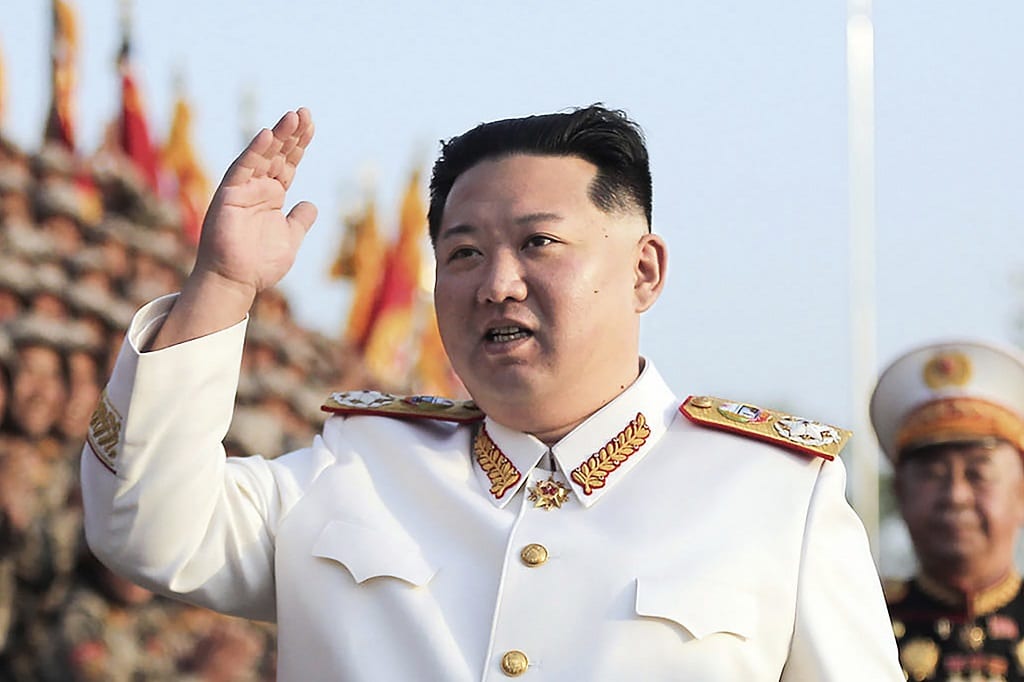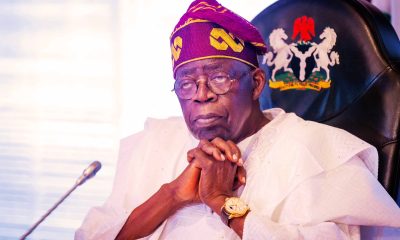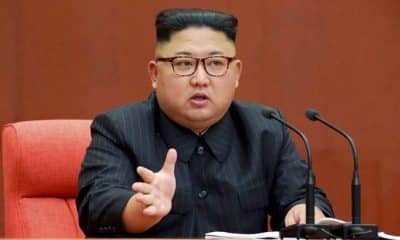Asia News
North Korean Leader Orders Military To Prepare For Possible ‘War’

North Korea’s leader, Kim Jong Un, ended the year by issuing new threats of a nuclear attack on Seoul and ordering a military arsenal build-up.
He emphasized the readiness for a potential war that could “break out any time” on the Korean peninsula, according to reports from state media on Sunday.
During an extensive speech at the culmination of five days of year-end party meetings, Kim strongly criticised the United States. The meetings were instrumental in determining North Korea’s military, political, and economic policies for the year 2024.
The gathering revealed plans for significant military advancements in the upcoming year.
These plans include the launch of three additional spy satellites, the construction of unmanned drones, the development of electronic warfare capabilities, and the reinforcement of nuclear and missile forces, according to the official Korean Central News Agency (KCNA).
In the course of this year, Pyongyang achieved several significant milestones, including the successful launch of a reconnaissance satellite.
Additionally, North Korea solidified its status as a nuclear power by incorporating it into its constitution. Notably, the country also conducted a test launch of its most advanced intercontinental ballistic missile (ICBM) in its arsenal.
Kim accused the United States of posing “various forms of military threat” and ordered his armed forces to maintain the “overwhelming war response capability“, according to KCNA’s account of the meeting that ended on Saturday.
The meeting concluded that it is a “fait accompli that a war may break out on the Korean peninsula any time due to the enemies’ reckless moves for invading the DPRK“, KCNA said, using the acronym of the North’s official name.
In a bid to deter Pyongyang, Washington took measures such as deploying a nuclear-powered submarine in the South Korean port city of Busan this month.
Additionally, the United States conducted joint drills with Seoul and Tokyo, involving the flight of long-range bombers.
However, North Korea characterised the deployment of Washington’s strategic weapons, including B-52 bombers, in these joint drills on the Korean peninsula as “intentional nuclear war provocative moves.”
The military “should rapidly respond to any possible nuclear crisis and put continuous spurs to the preparations for a great event to suppress the whole territory of South Korea by mobilising all physical means and forces including nuclear forces in contingency“, Kim said.
Kim conveyed to the meeting that he no longer intends to pursue reconciliation and reunification with South Korea. He pointed to what he described as an “uncontrollable crisis” triggered by Seoul and Washington.
Inter-Korean relations reached a low point this year, particularly after Pyongyang’s launch of a spy satellite, leading Seoul to partially suspend a 2018 military agreement aimed at easing tensions.
Kim emphasised that it would be a mistake to view South Korea, which publicly identified North Korea as the “principal enemy,” as a partner for reconciliation and reunification, as reported by KCNA.
Kim also ordered the drawing-up of measures for reorganising departments handling cross-border affairs to “fundamentally change the principle“.
Leif Easley, a professor of international relations at Ewha University in Seoul, said the emphasis on North Korea’s “significant military capabilities” was likely aimed at hiding its poor economic achievements this year.
“Much of what state-controlled media publishes is recycled propaganda.”
“Pyongyang’s bellicose rhetoric suggests its military moves are not only about deterrence but also domestic politics and international coercion,” he added.
In 2022, Pyongyang declared itself an “irreversible” nuclear power and has consistently reiterated its refusal to abandon its nuclear weapons program, considering it essential for its survival.
The United Nations Security Council has issued numerous resolutions urging North Korea to cease its nuclear and ballistic missile programs since the country’s first nuclear test in 2006.
Despite these resolutions, North Korea has maintained its stance on the development and possession of nuclear weapons.












